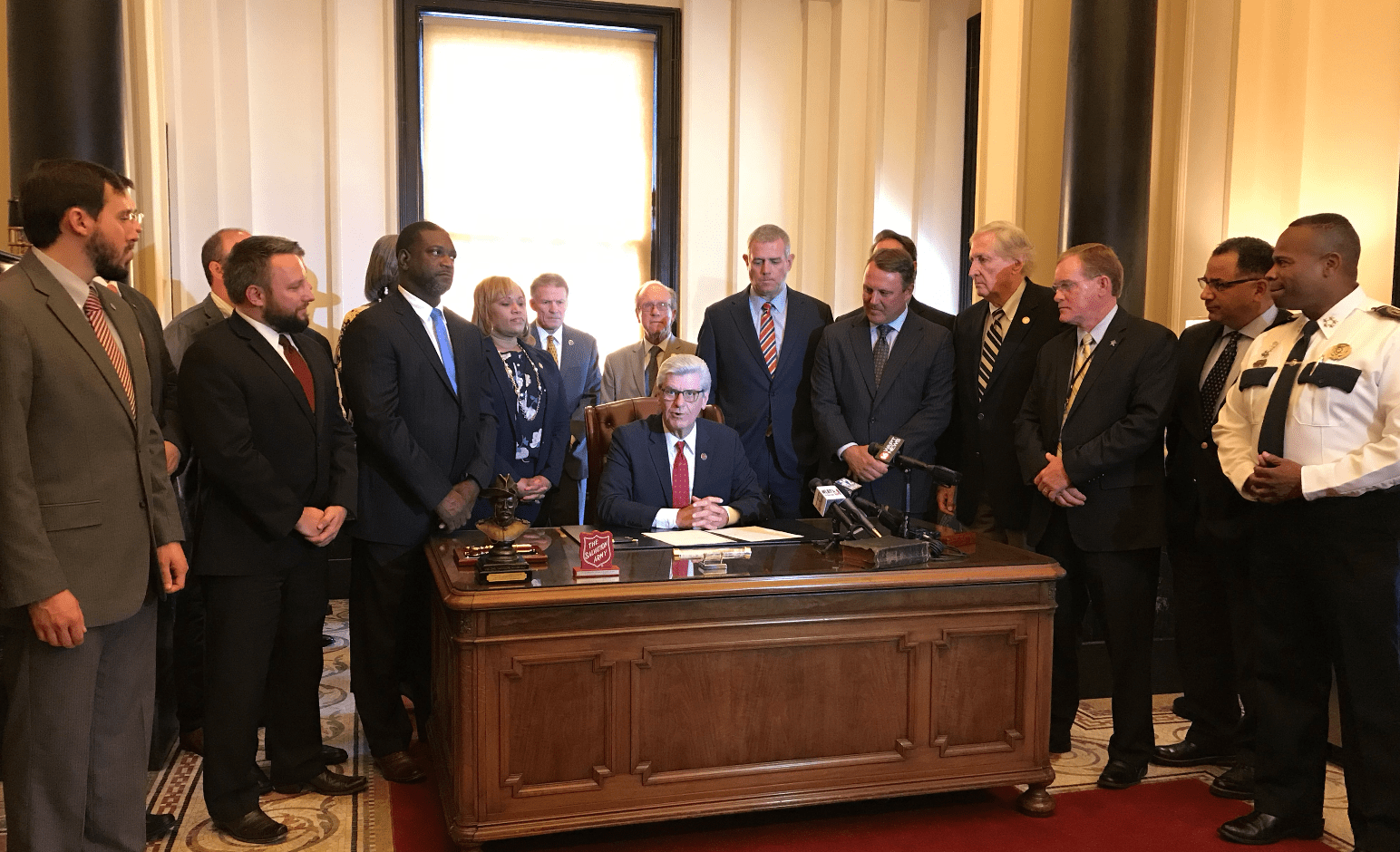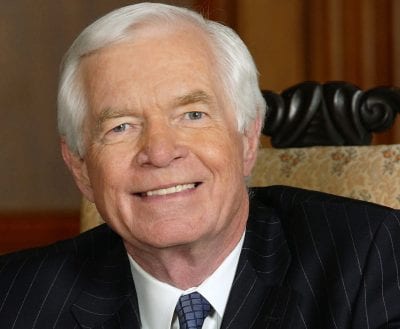
Studio portrait of Sid Salter. (photo by Beth Wynn / © Mississippi State University)
By: Sid Salter
Our pop culture in this country has made mincemeat out of the phrase “thinking outside the box” and rendered the phrase trite and meaningless. That is, until lawmakers in the State of Washington recently enacted legislation that reflected thinking that is literally “outside the box” or at the very least the coffin or the urn.
In America, the usual choices for those contemplating the appropriate disposition of human remains has been either interment (burial in the ground) or immurement (entombment above ground in a crypt or mausoleum) or cremation followed by collection and storage of ashes in a receptacle or urn. Some scatter the ashes in various venues depending on local laws.
Historically, many Native American cultures disposed of bodies through exposure to the elements and to scavenger animals. The ancient Egyptians practiced mummification. There are a number of other methods with varying degrees of popularity and legality.
The funereal phase “ashes to ashes, dust to dust” covers a wide range of philosophical and religious thought related to death and what happens afterwards.
In Genesis 3:19, the Bible promises: “In the sweat of thy face shalt thou eat bread, till thou return unto the ground; for out of it wast thou taken: for dust thou art, and unto dust shalt thou return.”
By 1662, the Book of Common Prayer offered the following burial service text: “Forasmuch as it hath pleased Almighty God of His great mercy to take unto Himself the soul of our dear brother here departed, we therefore commit his body to the ground; earth to earth, ashes to ashes, dust to dust; in sure and certain hope of the Resurrection to eternal life, through our Lord Jesus Christ; who shall change our vile body, that it may be like unto His glorious body, according to the mighty working, whereby He is able to subdue all things to Himself.”
And from my generation, who can forget David Bowie’s provocative 1980 song “Ashes to Ashes” from the album Scary Monsters (and Super Creeps) that served up these lyrics: “Ashes to ashes, funk to funky,We know Major Tom’s a junkie,Strung out in heaven’s high,Hitting an all-time low,My mother said to get things done, You’d better not mess with Major Tom.”
Monty Python’s Flying Circus catchphrase is at this point relevant: “And Now for Something Completely Different.” Washington Gov. Jay Inslee on May 21 signed into law a measure passed by the Washington Legislature that would allow human remains to be composted.
Specifically, the law authorizes the practice of recomposition or human composting to turn the remains into soil or a form of fertilizer. The new law will take effect in May of 2020.
The law permits a process of “natural organic reduction,” defined as “the contained, accelerated conversion of human remains to soil.” The process uses a mixture of wood chips, alfalfa, and straw in a rotating vessel to speed up natural decomposition – and when this is all complete, the family can take the soil and spread it as they would ashes after cremation.
The bill was the brainchild of Washington State Sen. Jamie Pederson, a native of Puyallup, Washington. In February, Pederson told CNN: “It’s about time we apply some technology, allow some technology, to be applied to this universal human experience both because we think that people should have the freedom to determine for themselves how they’d like their body to be disposed of and also because we have learned over time that there are some more environmentally friendly and safe ways of disposing of human remains.”
Current Mississippi law allows for interment, immurement, and cremation and no Mississippi lawmaker has introduced a bill seeking to legalize recomposition.
That could change. One Washingtonian who supported the new law told KIRO-TV that she told her brother about the law and he replied: “Oh great, you can plant tomatoes in me.”
And we all know how crazy Mississippians can get during tomato sandwich season – even to the point of thinking (gulp!) outside the box.











